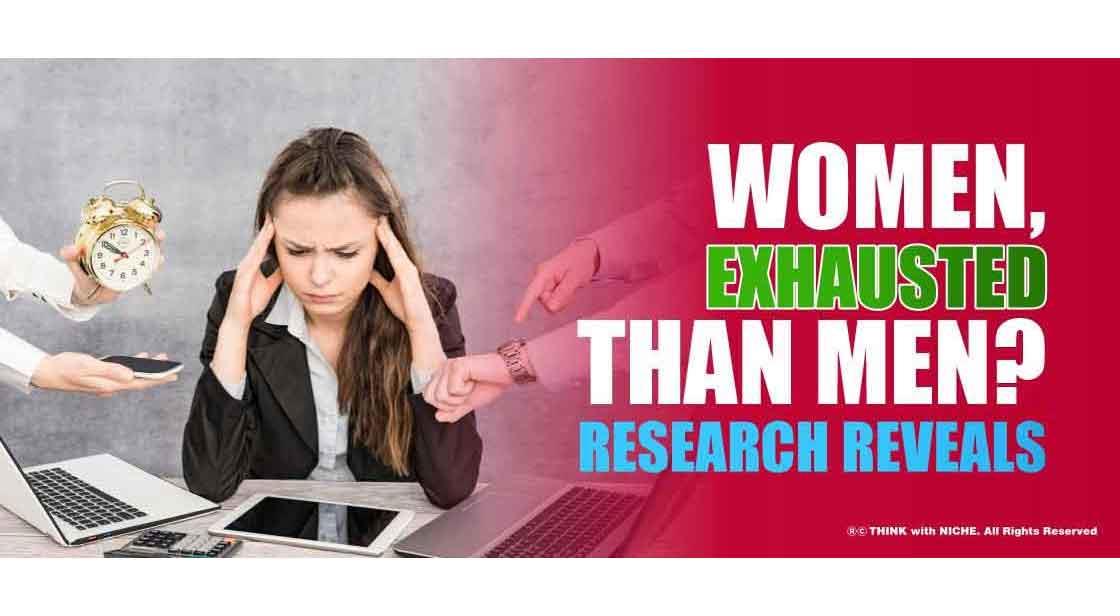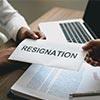Women Exhausted than Men? Research Reveals

Blog Post
As females sacrificed key social livelihoods throughout lockdown, that may have served as physically and emotionally vents for tension. #ThinkWithNiche
Several women's experiences reflect a profoundly established social inequity that the epidemic altogether exposed and deepened. For a myriad of purposes, women, especially women with children, are still much more than three times more expected to juggle a supplemental complicated system of everyday tasks, an incalculable blend of non-payment household tasks, and skilled labor. Although the brainpower of perfecting this delicate dance is indeed evidence for centuries, Covid-19 has shed new attention on the issue. According to data, emotional exhaustion and burnout affect more females than males and notably more employed moms than employed dads. It might have a variety of consequences for the post-COVID landscape of labor efforts must be made so that both corporations and civilization as a whole seek solutions to address this discrepancy.
The latest stats on fatigue in women, in particular, is troubling. As per a study done by LinkedIn consisting of over 5,000 Adults, 74 percent of the total women stated they felt extremely or very anxious at the workplace, contrasted to only 61 percent of professional male participants. In a parallel study conducted by a workplace environment consultant a good time to duties and wellbeing setup Maven discovered that women in paid jobs are 23 times as likely than dads in full-time work to feel burnout. According to the report, approximately 2.35 million professional women in the United States have experienced burnout ever since the onset of the epidemic, notably caused by uneven requirements of the workplace and home. Fewer earnings, according to studies, are associated with greater levels of tension and, in aggregate, bad psychological wellbeing. However, some investigations have found that the frequency of exhaustion between women is higher due to disparities in job circumstances and the influence of genders on advancement. The majority of experts agreed that there is no one cause of women's fatigue, and yet they all believe that the intersection of cultural systems and gender conventions plays a substantial impact. Disparities in the workforce, for instance, are closely tied to established gender norms.
As females sacrificed key social livelihoods throughout lockdown that may have served as physical and emotional vents for tension, it's evident that the sudden landslide of additional household tasks drove others who were struggling to balance personal life and jobs to their breaking point. Amongst the most serious worries that workforce specialists have is that psychological distress amongst women in the office may prevent youths from pursuing aspirational career objectives, especially if they wish to establish a household. It might worsen the already-existing gender disparities in salary and status within the workforce.












